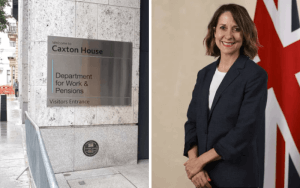The government is still considering whether it needs to draw up plans to protect disabled people who rely on life-saving medical equipment in their own homes if there are power cuts, 11 months after it was warned about possible winter blackouts.
National Grid ESO, which controls the flow of energy around Britain, warned in early October 2022 that there could be periods when it needed to order “interruptions” to customers’ electricity supply for “short periods”.
Since that warning, Disability News Service (DNS) has been trying to secure information from the government on how it proposed to protect those in England who rely on equipment such as ventilators and dialysis machines in the event of major winter power cuts.
As a result of the government’s continuing refusal to release that information, DNS complained to the information commissioner, which launched an investigation into the failure of the Department of Health and Social Care (DHSC) to release any plans it had drawn up.
DNS had also asked for a copy of any guidance sent out to the NHS in England to help trusts prepare for the protection of people who rely on medical equipment at home.
Following the intervention of the Information Commissioner’s Office, DHSC has now admitted it is still considering its “policy position” on whether it should issue any guidance, and it is therefore withholding the information because its internal paper is “incomplete”.
It has told DNS: “DHSC is still in the process of determining the department’s policy position on whether guidance should be issued specifically on the matter of the use of at-home medical devices during a power outage.
“The document is an internal scoping paper that is being used to record information gathered during the policy exercise and to identify options for potential action by the department and its arms-length bodies.
“This activity continues and the document remains in draft.”
DHSC has also clarified this position by admitting that it did not send any guidance to the NHS last winter to help trusts protect disabled people who rely on medical equipment at home.
It said: “DHSC did not send any guidance to NHS bodies that specifically covered those who rely on medical equipment at home, such as ventilators or dialysis machines.”
The information commissioner ruled yesterday (Wednesday) that DHSC did not have to release the scoping paper because the document was “unfinished”, although it pointed out that the government’s “thinking” on the issue should “arguably” have been “at a more complete stage” by the time DNS submitted its freedom of information request in late April.
Alan Benson, a leading disabled campaigner, particularly on accessible transport, relies on a collection of vital equipment at home, including a day-time and a night-time ventilator, two powered wheelchairs, and an electric hoist, while he also needs to stay warm for health reasons.
He said: “After 11 months we discover government are still deciding whether to make a decision and withholding information despite acknowledging the public interest to release it.
“This Kafkaesque situation leaves disabled people like me, who rely on electricity supplies for the very air we breathe, entering another winter of uncertainty.
“I fear we will only see action when power fails and the situation becomes critical, by which time it may be too late.”
A note from the editor:
Please consider making a voluntary financial contribution to support the work of DNS and allow it to continue producing independent, carefully-researched news stories that focus on the lives and rights of disabled people and their user-led organisations.
Please do not contribute if you cannot afford to do so, and please note that DNS is not a charity. It is run and owned by disabled journalist John Pring and has been from its launch in April 2009.
Thank you for anything you can do to support the work of DNS…

 Ministers are secretly considering means-testing PIP, DWP admits, despite pledge in green paper
Ministers are secretly considering means-testing PIP, DWP admits, despite pledge in green paper DWP’s unlawful silence on ‘critical friend’ report raises questions over minister’s transparency pledge
DWP’s unlawful silence on ‘critical friend’ report raises questions over minister’s transparency pledge Reports send separate warning shots to English and Scottish governments on social care reform
Reports send separate warning shots to English and Scottish governments on social care reform